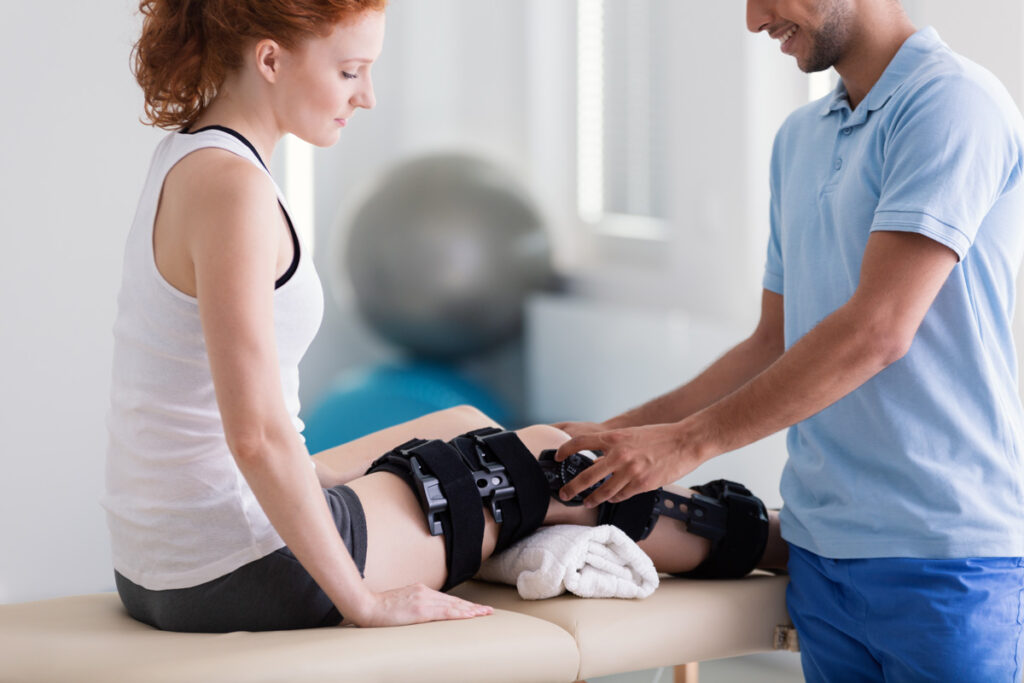
In the ever-evolving world of sports physical therapy, the integration of cutting-edge technologies has become a game-changer, providing unprecedented insights into force outputs and biomechanics. This blog explores the transformative impact of incorporating new technologies to measure these crucial parameters, highlighting how this integration enhances the precision and effectiveness of sports rehabilitation. This allows for optimal return to sport as well as improved prevention of future injuries.
If you want to learn more about how Bethesda Physiocare treats sports injuries, contact us online or call (301) 656-5613 today.
The Role of Force Outputs and Biomechanics
Understanding force outputs and biomechanics is fundamental in sports injury physical therapy. Force outputs refer to the amount of force generated during movement, while biomechanics involves the analysis of body mechanics and movement patterns. Both play a pivotal role in injury prevention, performance optimization, and rehabilitation in the world of sports.
Emerging Technologies:
- OxeFit and Force Plates:
Force plates are sophisticated tools that measure ground reaction forces during various movements. Integrating force plates into sports physical therapy allows therapists to quantify an athlete’s force outputs, providing valuable data for assessing imbalances, identifying weaknesses, and tailoring rehabilitation programs. Additionally, our clinic utilizes OxeFit technology to monitor the same metrics for upper extremity and core exercises.
- Proteus:
Proteus offers an in-depth analysis of an athlete’s movement patterns, helping physical therapists identify irregularities or inefficiencies that could lead to injuries. This is done through unique 3-dimensional resistance.
- REAX:
The REAX system offers externally focused targets that and stimuli that allow measurement of reaction time and speed. This is critical for athletes attempting to return to sport.
Integration for Precision Rehabilitation
- Customized Treatment Plans:
By integrating force plate data and 3D motion capture insights, sports physical therapists can create customized treatment plans. These plans address specific force imbalances and biomechanical inefficiencies, ensuring that rehabilitation efforts are targeted and tailored to the individual needs of each athlete.
- Real-time Feedback:
The use of wearable sensors facilitates real-time feedback on biomechanics during training or rehabilitation sessions. Athletes and therapists can instantly identify deviations from optimal movement patterns, enabling timely corrections to prevent the development of faulty mechanics and mitigate injury risks.
- Objective Progress Tracking:
Objective measurement of force outputs and biomechanics allows for precise tracking of an athlete’s progress. Therapists can monitor improvements in strength, address lingering biomechanical issues, and make informed adjustments to sports injury physical therapy rehabilitation programs based on quantifiable data.
- Injury Prevention:
The integration of these technologies aids in proactive injury prevention. Identifying potential stress points, asymmetries, or inefficient movement patterns early on enables therapists to implement targeted interventions, reducing the risk of overuse injuries and enhancing overall musculoskeletal health.Incorporating advanced technologies to measure force outputs and biomechanics is reshaping the landscape of sports physical therapy. The ability to gather precise data on an athlete’s movement dynamics provides therapists with a deeper understanding of their condition and enables the development of tailored rehabilitation strategies. As we embrace these innovations, the future of sports rehabilitation holds the promise of not only recovering from injuries but also optimizing performance with a level of precision and personalization never before achievable. Sports physical therapy, guided by technology, is propelling athletes toward their peak potential while minimizing the risk of injury. To get world-class physical therapy treatment for your sports injury, call (301) 656-5613 today.



